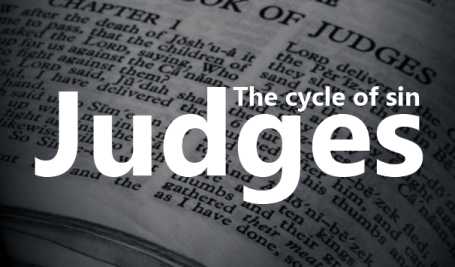The Book of Judges is one of the most dramatic and complex books in the Old Testament. It captures the turbulent years between Joshua’s death and the rise of Israel’s monarchy — a period marked by moral decline, social chaos, and spiritual rebellion. Yet amid the darkness, we see the mercy and faithfulness of God, who continually raises deliverers to rescue His people.
At its heart, Judges is a story of leadership, disobedience, and divine deliverance. It teaches timeless lessons about human frailty, God’s justice, and His relentless grace toward His covenant people.
Introduction and Historical Background
The Book of Judges is the seventh book of the Bible, following Joshua. It covers approximately 300 to 350 years of Israel’s history, from around 1375 to 1050 BC — the era between the conquest of Canaan and the establishment of Israel’s first king, Saul.
Understanding the Book of Genesis: Creation, Sin, and Redemption
After Joshua’s generation passed away, Israel was left without a centralized leader. God intended Israel to live under His rule, governed by His law. However, instead of walking in covenant obedience, the people repeatedly turned to idolatry and sin, resulting in national suffering and oppression.
The book’s recurring theme is summed up in its haunting refrain:
“In those days there was no king in Israel; everyone did what was right in his own eyes.” — Judges 21:25 (NKJV)
This verse captures the moral and spiritual anarchy of the time — a society without righteous leadership or reverence for God.
Structure and Outline of the Book of Judges
The Book of Judges is divided into three main sections that reveal Israel’s spiritual descent and God’s continuing compassion:
- Prologue (Chapters 1–2): Israel’s incomplete conquest and spiritual decline.
- Cycles of Judges (Chapters 3–16): Stories of twelve judges raised by God to deliver Israel.
- Epilogue (Chapters 17–21): Social and moral chaos showing Israel’s deep corruption.
Let’s break these down for better understanding.
a. The Prologue: Failure to Complete the Conquest (Judges 1–2): The book opens with Israel’s failure to fully drive out the Canaanites, despite God’s command. Their compromise — allowing idolatrous nations to remain — became the root of their spiritual downfall.
Understanding the Book of Exodus: Deliverance and Covenant
Judges 2 explains the pattern that defines the rest of the book — the cycle of sin and salvation:
- Israel sins and turns to idols.
- God allows enemies to oppress them.
- Israel cries out in repentance.
- God raises a judge to deliver them.
- Israel enjoys peace until they fall again.
This pattern repeats throughout the book, symbolizing humanity’s tendency to drift from God without strong spiritual leadership.
b. The Central Section: The Cycles of Judges (Judges 3–16): This section contains the accounts of twelve judges — six major and six minor. The major judges (Othniel, Ehud, Deborah, Gideon, Jephthah, and Samson) are described in detail, while the minor judges (Shamgar, Tola, Jair, Ibzan, Elon, and Abdon) receive brief mention.
Each judge served as a charismatic leader, raised by God to rescue Israel from oppression, not necessarily as a king or priest but as a temporary deliverer empowered by the Spirit of God.
c. The Epilogue: Moral Decay and Social Chaos (Judges 17–21): The final chapters of Judges present two disturbing narratives that show Israel’s complete moral collapse:
- The story of Micah’s idol and the tribe of Dan (Judges 17–18), which reveals widespread idolatry and spiritual confusion.
- The story of the Levite’s concubine and civil war (Judges 19–21), which exposes Israel’s moral depravity and lack of justice.
These accounts demonstrate that Israel’s true problem was not political or military — it was spiritual. Without godly leadership, the people strayed from God’s covenant.
The Cycles of Sin and Deliverance
The central theological pattern of the Book of Judges is often called “The Sin Cycle” or “Cycle of Apostasy.” This recurring process shows Israel’s repeated rebellion and God’s enduring mercy.
Here’s how the cycle unfolds:
- Sin: Israel turns away from God and worships idols.
- Servitude: God allows neighboring nations to oppress them.
- Supplication: Israel cries out in repentance.
- Salvation: God raises a judge to deliver them.
- Silence (Rest): The land has peace until the cycle starts again.
This pattern occurs at least seven times in the book. Despite Israel’s constant failures, God remains patient, demonstrating His steadfast love and covenant faithfulness.
Profiles of the Major Judges: To truly understand the Book of Judges, we must look at some of its most notable figures — the deliverers who led Israel in times of crisis.
a. Othniel (Judges 3:7–11): Othniel, the first judge, represents the ideal deliverer. Filled with the Spirit of God, he led Israel to victory over the king of Aram and brought peace for forty years. His story shows the simplicity and effectiveness of Spirit-led obedience.
b. Ehud (Judges 3:12–30): Ehud, a left-handed Benjamite, cleverly assassinated the Moabite king Eglon and freed Israel from oppression. His story highlights God’s use of unconventional methods and people to accomplish divine purposes.
c. Deborah and Barak (Judges 4–5): Deborah, a prophetess and judge, led Israel alongside Barak in defeating the Canaanite general Sisera. Her leadership is unique — she embodies wisdom, courage, and spiritual authority in a male-dominated era.
The victory song in Judges 5 celebrates God’s triumph and underscores the power of faith and unity.
Understanding the Book of Leviticus: Worship and Holiness
d. Gideon (Judges 6–8): Gideon’s story is one of fear turned to faith. Initially hesitant, Gideon obeyed God’s call and led 300 men to defeat the Midianites. The key lesson is that God’s strength is made perfect in human weakness.
However, Gideon’s later years reveal the dangers of pride and compromise, as he made an ephod that became a snare to Israel.
e. Jephthah (Judges 11–12): Jephthah was an outcast who became a deliverer through faith. However, his rash vow cost him dearly, showing the consequences of hasty promises and the need for wisdom in spiritual zeal.
f. Samson (Judges 13–16): Perhaps the most famous judge, Samson was a Nazirite chosen before birth to deliver Israel from the Philistines. Endowed with supernatural strength, Samson’s downfall came through moral weakness and disobedience.
Despite his failures, God used Samson’s death to strike a final blow against the Philistines — demonstrating that God’s purposes prevail even through flawed people.
Key Themes in the Book of Judges
The Book of Judges is not just a collection of ancient stories; it’s a theological mirror reflecting God’s dealings with humanity. Several major themes stand out:
a. Leadership and the Need for Godly Authority: Judges reveals what happens when a nation lacks spiritual direction. Without godly leadership, people drift toward moral chaos. The repeated phrase — “Everyone did what was right in his own eyes” — underscores the dangers of moral relativism.
Each judge represents both God’s mercy and the limitations of human leadership. The book points to the need for a righteous, eternal King — ultimately fulfilled in Jesus Christ.
b. The Faithfulness and Patience of God: Despite Israel’s repeated rebellion, God continually shows mercy. He raises deliverers again and again, demonstrating His long-suffering love and covenant faithfulness.
Understanding the Book of Numbers: Journey and Faithfulness
This theme teaches that even when God’s people fail, His grace still abounds. As Psalm 103:8 declares,
“The Lord is compassionate and gracious, slow to anger, abounding in love.”
c. The Dangers of Compromise and Idolatry: Israel’s downfall began with compromise — failing to remove Canaanite idols and influences. This mirrors the modern believer’s struggle against worldly distractions that lead to spiritual decline.
Judges reminds us that partial obedience is disobedience, and tolerating sin eventually leads to captivity.
d. Human Weakness and Divine Strength: Each judge’s story reveals human frailty and divine power. God uses unlikely heroes — men and women with flaws — to fulfill His purposes.
This reminds us that God doesn’t call the qualified; He qualifies the called. His Spirit empowers ordinary people for extraordinary missions.
e. Covenant and Repentance: Throughout Judges, God’s covenant relationship with Israel remains central. Whenever Israel repents, God forgives and restores them.
This demonstrates that repentance is the key to restoration. God’s covenant love never fails, even when His people do.
Theological Significance of the Book of Judges
The Book of Judges reveals profound theological truths about God’s nature and humanity’s spiritual condition:
- God is sovereign over nations and history.
- Sin brings bondage, but repentance brings deliverance.
- Leadership matters, and moral failure has national consequences.
- Salvation is by grace, not human merit.
- The book anticipates the need for a righteous, eternal King — pointing forward to Jesus Christ, the ultimate Deliverer.
Understanding the Book of Deuteronomy: Law and Covenant Renewal
Lessons and Application for Today
Though written thousands of years ago, the Book of Judges speaks powerfully to our generation. Here are a few timeless lessons:
- Obedience Brings Blessing: Like Israel, believers today must trust and obey God’s Word completely.
- Leadership Determines Direction: Families, churches, and nations thrive under godly leadership.
- Avoid the Cycle of Sin: The repetitive pattern of sin and repentance warns us to live in consistent faithfulness.
- God Uses Imperfect People: From Gideon to Samson, God shows that His power works through weak vessels.
- Christ Is Our Perfect Judge: Unlike the temporary deliverers, Jesus provides eternal salvation and peace.
The story of Judges calls every believer to break the cycle of compromise by embracing the Lordship of Christ and walking daily in the Spirit.
Conclusion: From Chaos to Covenant Faithfulness
The Book of Judges is a sobering reminder of what happens when God’s people forget His covenant and follow their own desires. Yet, it is also a story of grace and redemption.
Understanding the Book of Joshua: Conquest and Faith
Through every failure, God proves Himself faithful. He raises deliverers, restores His people, and prepares the way for the coming King — Jesus Christ, the ultimate Deliverer who conquers sin once and for all.
Judges teaches us that leadership without God leads to chaos, but when God reigns in our hearts, there is peace, purpose, and victory.
“The Lord raised up judges, who saved them out of the hands of those who plundered them.” — Judges 2:16
May we learn from Israel’s history to seek God’s presence, follow His Word, and walk faithfully under His leadership.
Understanding the Book of Ruth: Loyalty and Providence
Last modified: October 30, 2025





